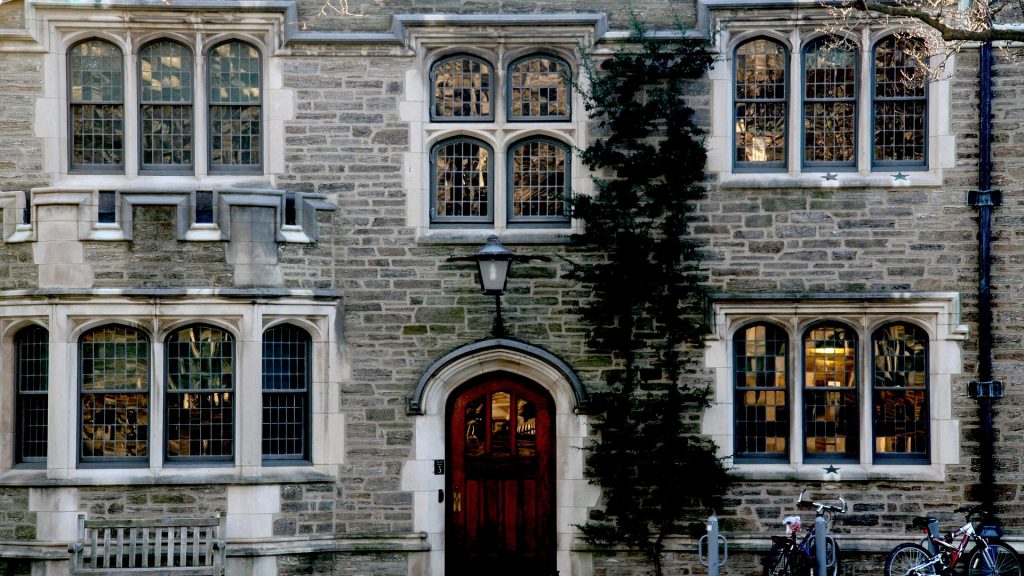
Brennan Barnard recently wrote about Six Terms to Stop Using in College Admissions, and I could not agree more. However, there are three I want to say a bit more about here: fit, well-rounded, and passion. All three of these are garbage as they are commonly understood and used!
Barnard writes:
“Fit” is one of the most overused terms in college admission, and while the intentions are admirable, it can be misleading. By emphasizing “fit”, educators try to move students and families away from a focus on selectivity, rankings or the notion that admission to college is a prize to be won. However, it can often be misunderstood as suggesting that there will be one school that fits perfectly like a glove, and it can be intimidating to students when this type of fit eludes them.
“Fit” is not applied in the same way across its uses in college admissions. There is no single definition or explanation fo it is is used. From my experience, one applicant might be deemed a better “fit” by admissions because of the high school they attend, or if they have “legacy,” or that they meet some other type of institutional need. Many students and families do not realize that fit goes beyond the numbers and also includes factors that you have no control over. You can look at different factors and deem yourself a perfect “fit” as far as your test scores, GPA, and even as far as how what you’ve taken part in throughout high school demonstrates your understanding of the mission and values of the school you are applying to. But you will never be able to gauge exactly how admissions are using “fit” as they evaluate your application because it varies from student-to-student.
If applicant A and applicant B are held equal across data points, but the school you are applying to needs a flute player, and A plays the flute, A might be deemed a better fit and admitted over B. If applicant A and applicant B are not held equal across data points (let’s say A is a less stellar student all around), but the school you are applying to needs a flute player, and A plays the flute, A might be deemed a better fit and admitted over B. This second scenario touches Barnard’s point: you never really know exactly what “fit” is at any given point in time, and some students miss out on possibly being a fit at certain schools because they deem themselves not a fit based on a few data points alone. “Fit” is a garbage term on many levels and is one that can be confusing.
On being well-rounded, he notes:
“Well-rounded” is another term that is misused in college admission. The perception is that colleges and universities are looking for applicants who have a bit of everything. Assumedly, students should have a balance of excellent grades and test scores with a perfect spread of activities and involvement in a wide range of areas. These “wonder children” should be able to sing, dance, play soccer while holding their fiddle and volunteer using multiple languages, right? Wrong says Heath Einstein, dean of admission at Texas Christian University. He explains that “colleges do not seek well-rounded people; we want angular individuals who create a well-rounded class.” So, let’s allow the overscheduling and pressure of resume building in the name of well-roundedness to pass with 2018.
Well-rounded has not been something a student should strive for in a long time—even in the time of “holistic” admissions (another garbage and misleading term). But let’s be more specific: well-rounded student is the term that needs to go. Colleges want students who beyond the grades and test scores they look for are more narrow, not broad. We tend to see specialists win over generalists. Like Einstein says above, colleges seek out well-rounded classes—this is true. But they do not seek out well-rounded students. Well-rounded classes are made up of individuals with areas of expertise, unique value-adds, not a bunch of people who are just “good” at the laundry list of things on their resumes.
Lastly, on one of those most overused terms out there:
“Passion” is a word that makes high school students cringe. When they hear college admission offices talk about finding or demonstrating passion, they are often paralyzed by the perception that they must know what they will do with their life, or that they need to have identified their one big thing. The pressure to know and achieve is stifling and we need to think about involvement or engagement in different terms. Courtney Skerritt, director of college counseling at The Hockaday School agrees, saying, “I’m reading ‘Enough as She Is’ by Rachel Simmons and she does an amazing job outlining what is wrong with using the word ‘passion’ with teenagers and how, instead, we should have conversations about ‘purpose’”. Skerritt adds, “Simmons’ work struck me, as this conversation has been happening with girls at Hockaday for over 100 years and with focus through our Institute for Social Impact. Students are craving an engagement in their future, but in ways that don’t make them feel like they have to figure it all out today.”
Most high school students are not passionate about anything (or anything that a college would find appealing). What a loaded and silly word as it pertains to college. Full-disclosure: in the past, I used it because I thought that was the goal, but I have known for a while now that I was wrong. Colleges want to see students who have developed interests. That is it. They do not have to be full-blown passions or life’s work. I mean, let’s be real, most adults don’t even have passions. I also know that beyond it being an inaccurate representation of what colleges seek in applicants it can be hurtful to throw around so lightly.
Students should aim to get out into the world and explore their interests whether they turn into a passion one day or not. That is what makes an interesting applicant: a student who has the motivation and curiosity to get out into the world and learn about what they like even if that means they eventually learn they do not like it so much. Now, bonus points if by around grade 10-11 you have found something you enjoy and you can narrow your focus to explore it more deeply, but if not, just keep exploring 1 or 2 things and don’t worry about being a well-rounded applicant.
*Stay in the know! Subscribe for news, tips, and advice*


